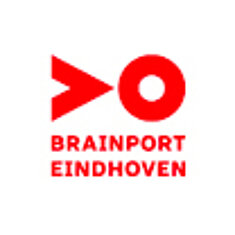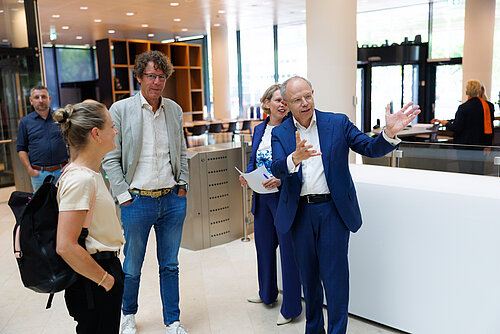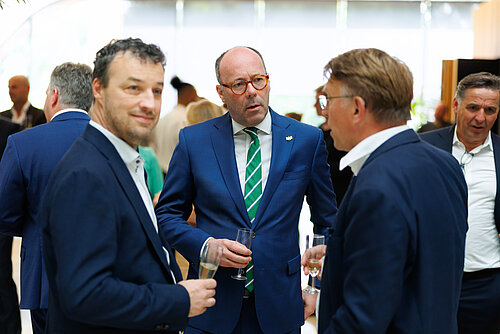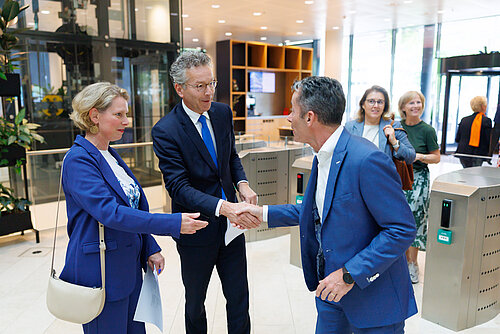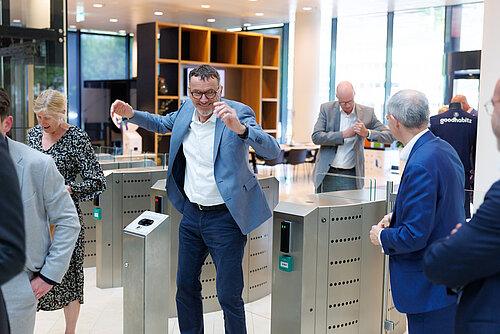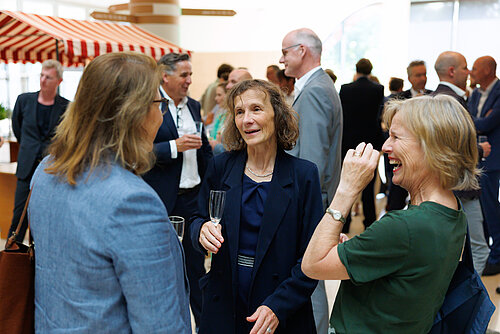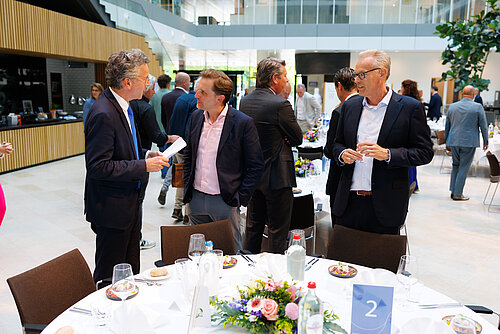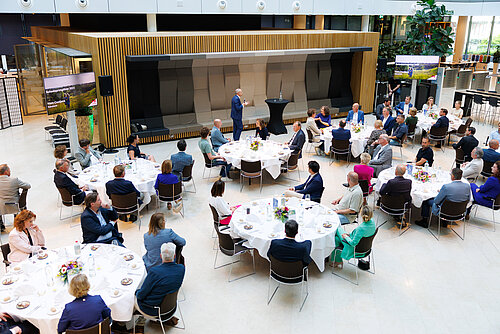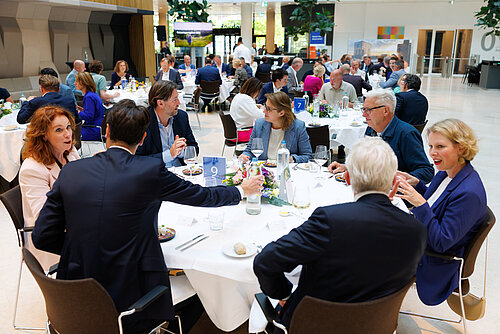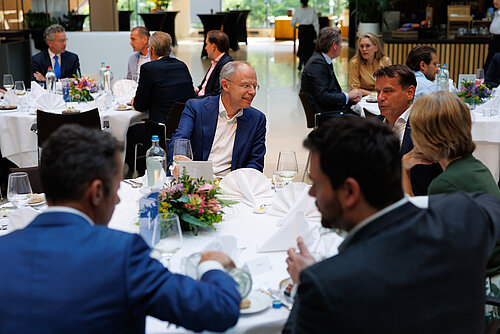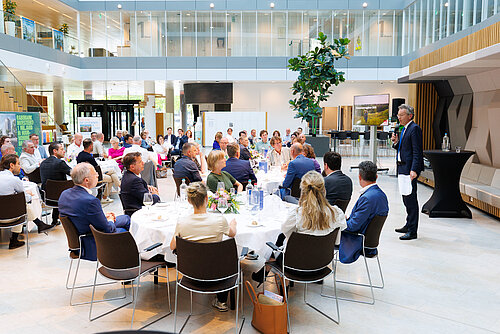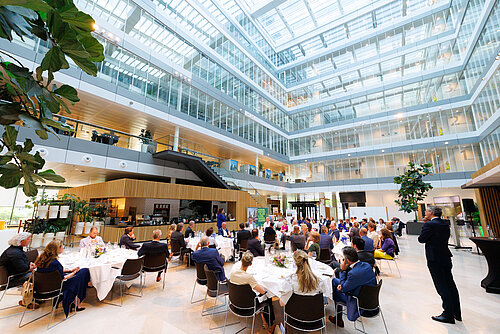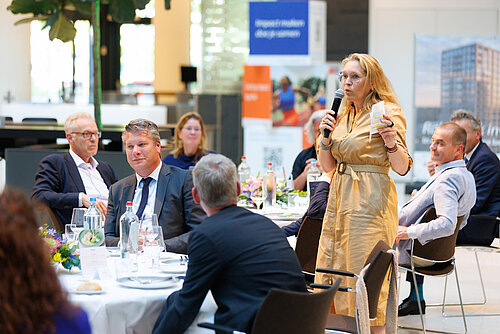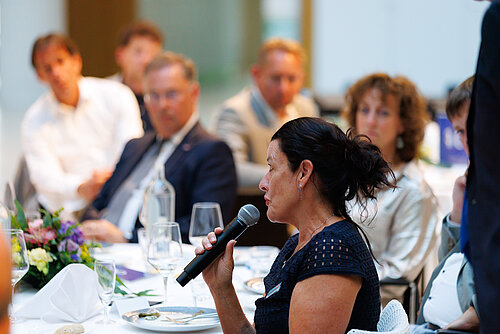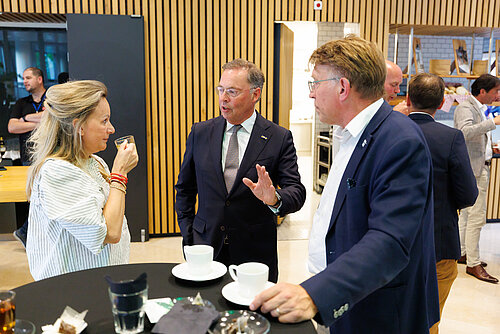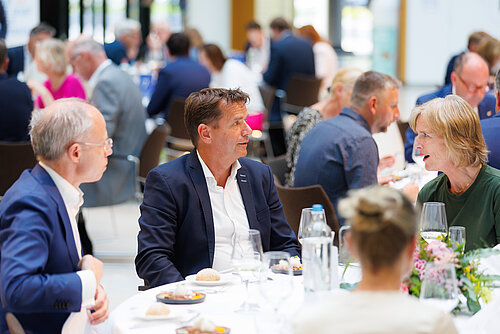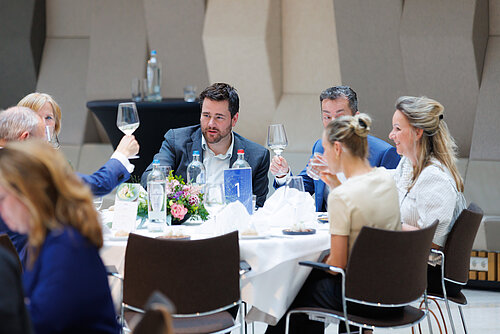Regional Growth Dinner 2025: 'Moving forward at full speed'
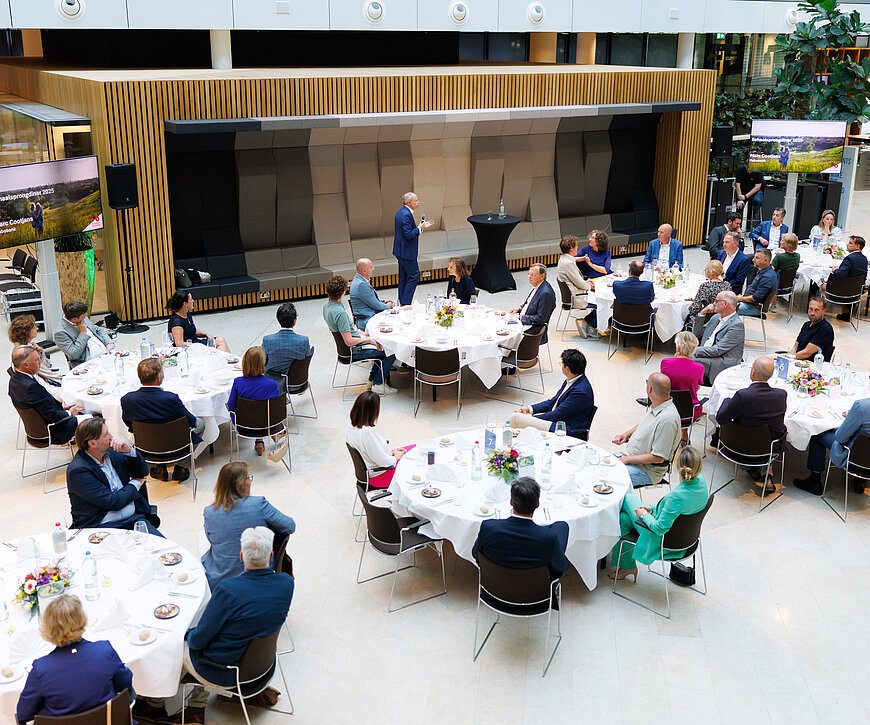
Regional Growth Dinner 2025: 'Moving forward at full speed'
Last Thursday, a very successful Regional Growth dinner took place at Rabobank Eindhoven. In an atmospheric setting, representatives of the business community and public partners came together for an inspiring evening full of substantive discussions, valuable encounters and lively interaction. The attendees – including a large number of the 35 participants of the Brainport Partner Fund [Brainport Partnerfonds] – entered into a dialogue with each other about the future of the Brainport region and the joint ambition to achieve the region's upscaling in a sustainable way. One thing became clear: we will continue at full speed.
The dinner offered plenty of room for input, reflection and connection. The focus was on the four public tasks that will determine the growth and quality of life of the region in the coming years: accessibility, housing, talent development and social cohesion/equality of opportunity. The evening made it clear: the willingness to invest together in the future is great – and the energy to take action is palpable.
Welcome and opening
The evening was opened by the director of Rabobank Eindhoven, Marc Cootjans. He welcomed all those present, in particular the partners [or affiliated companies] of the Brainport Partner Fund present. Together, these companies contribute to a private investment contribution that should amount to 200 million euros in 12 years' time. These funds will be used for the four public tasks of the upscaling.
Cootjans emphasized that Rabobank not only participates through the fund, but has also recently taken two great steps to contribute to the sustainable growth of the region. With an investment of 1 billion euros in the mid-rental segment, in which Rabobank will be responsible for the rental itself through its subsidiary BPD Woningfonds, the bank is contributing to the regional housing challenge. With the entry of Rabobank as one of PSV's main sponsors, the bank also underlines its social involvement.
Jeroen Dijsselbloem: in full implementation
After Marc Cootjans' welcome speech, the mayor of Eindhoven and chairman of the Brainport Foundation, Jeroen Dijsselbloem, also welcomed those present and emphasized that the Brainport Deal and Beethoven agreements are now in the implementation phase and that the realization of the intended development of the region and all the measures that go with it are in full swing. Despite the fall of the cabinet, he assured that the agreements made will be continued. He called for being as innovative in execution as the region is in technology. "We will continue at full speed," was his core message.
ASML: long-term economic outlook is positive
Joost van Hees, Head of Public-Private Partnerships & Countries at ASML, gave an insight into the current situation of the company. He indicated that he knows ASML as a company that is growing from record turnover to record turnover. At the same time, he receives signals that a number of customers are currently in dire straits. Despite the fact that the short term has challenges, there is optimism in the longer term. Although postponement of investments and geopolitical dynamics certainly have an impact on ASML and therefore on its suppliers, revenue growth is expected from 28.3 billion to a range of 30 to 36 billion euros in 2026. The long-term outlook is positive: an increasing demand for chips is expected until 2030, leading to an expected growth in sales of 44 to possibly even 60 billion euros. "This means that we must continue to prepare for further growth and continue to focus on making a leap in scale," says van Hees.
Dijsselbloem confirmed this urgency: "There is no time for relaxation. We have to keep going." When asked by Paul van Nunen how the fall of the cabinet relates to the public agreements, the answer was: all agreements made – whether it concerns the Beethoven deal, the Brainport deal or the housing deals – will remain in force and the administrative consultations will continue.
Business as a motor
Dijsselbloem expressed his gratitude to the business community present: "Thanks to your contributions through the Brainport Partner Fund, we can continue." Rob Janssen, chairman of the board of the Partner Fund, emphasized that two years ago the business community promised to contribute 200 million euros to the financing of the Scale Jump. In one year, the fund has been set up and 35 companies have already joined – a diverse group of entrepreneurs and companies. He called on all those present to nominate new partners.
Housing and infrastructure
Laura Volleberg of the Eindhoven Metropolitan Region (MRE) gave an update on the implementation of the infrastructure and housing challenges. The Brainport Deal contains an integrated package of measures that stimulates mobility transition, including bus use on emergency lanes, mobility hubs and a regional fast cycle path network. The agreements are widely supported by the 21 municipalities in the region.
Ambitious plans for housing construction have been laid down in the Beethoven agreements. MRE supports smaller municipalities through a special housing acceleration team, financed by the Brainport Partner Fund. In addition, a team is being formed to tackle grid congestion together.
Talent development in the semiconductor sector
Joep Houterman, chairman of the Executive Board of Fontys, explained the approach to training talent in the semiconductor sector. TU/e, Fontys, Summa College and ROC Ter Aa are working together on three pillars:
- Further development of semiconductor-specific education.
- Improving intake, advancement and outflow in (all) technology courses.
- Alignment with international recruitment, in which language education is a bottleneck for SMEs.
Brainport for Each Other (Brainport voor Elkaar)
Marc Cootjans was interviewed about the Brainport for Each Other association, a collaboration of social employers that focuses on three themes:
- Everyone to work.
- Improving fitness, financially, mentally and linguistically.
- Connecting regional competencies to societal organizations.
The association has already taken concrete steps thanks to long-term financial support from the Partner Fund. The recruitment of a director is currently underway.
Following this, attention was paid to scaling up in healthcare. In particular, the prevention of demand for care was a point raised by Ellen Huijbers of care organization Stroomz. She stated that a sustainable leap in scale also means that residents and employees remain vital. A regional agenda has been drawn up for this with the ambition to also become the most vital region.
Reflections and closure
During the reflection round after dinner, important social questions were discussed. Hans Martin Don (Samen voor onze Regio, Together for our Region) asked how the story of growth can be told to employees and residents. Jeroen Dijsselbloem replied that he feels responsible for telling this story, but also needs the support of the region.
Jacqueline from Kordaat Welzijn emphasized the importance of collecting stories in the region. Hilbert de Vries (SSOE) pleaded for continued attention to language skills, especially for international children in education. He called on the business community to develop language programs and to let international employees learn Dutch.
Conclusion
The Regional Growth Dinner underlined the shared sense of lasting urgency, responsibility and optimism for the future of the Brainport region. Thanks to public-private partnerships, involvement and innovative strength, the region is taking concrete steps towards an inclusive, accessible and future-proof society.
